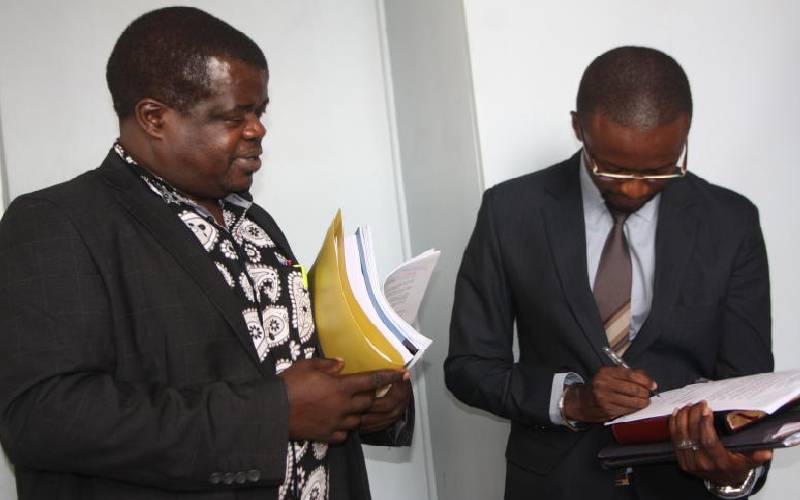×
The Standard e-Paper
Smart Minds Choose Us

A case seeking interpretation of the integrity law, how it should be applied on candidates standing for election for political offices, has been dismissed.
The Supreme Court threw out the case yesterday.